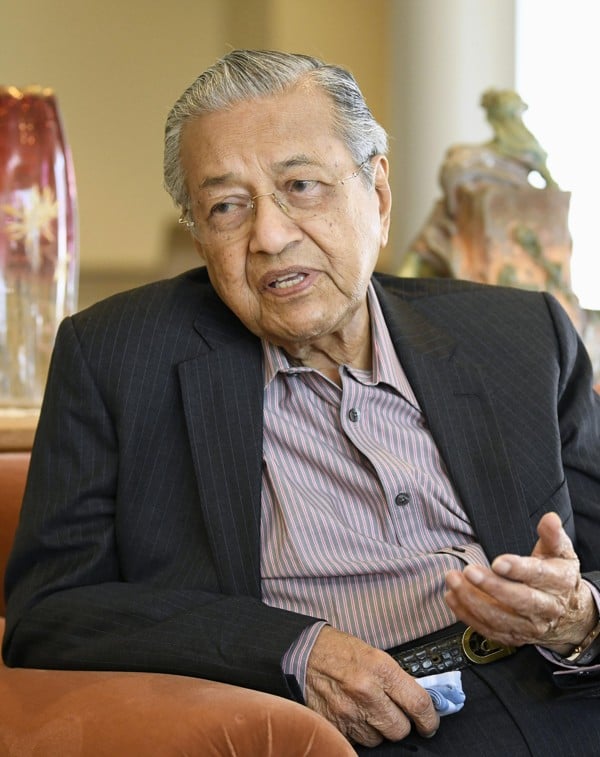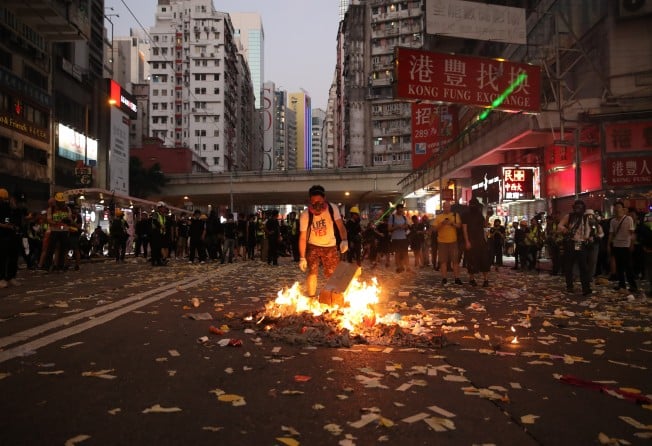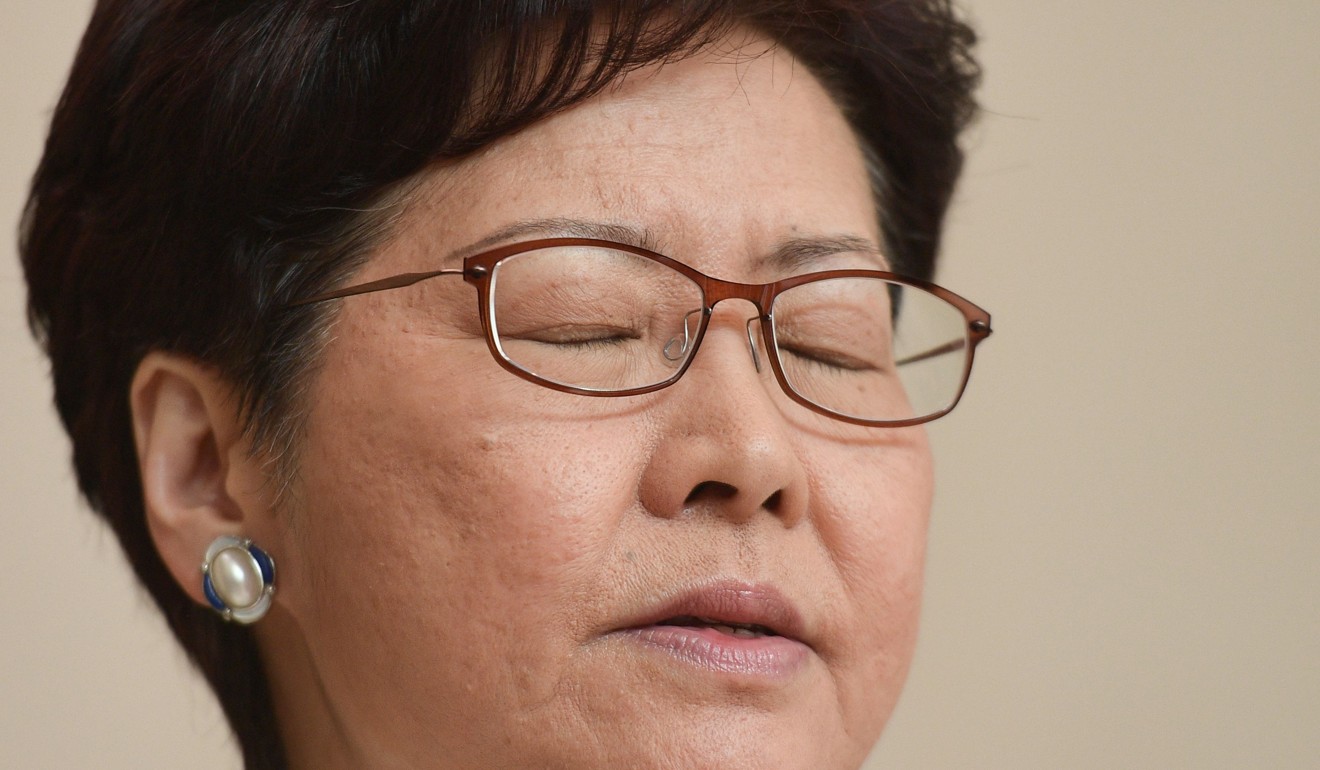
Carrie Lam should resign over Hong Kong protests: Malaysian leader Mahathir Mohamad
- The Malaysian leader warns of a repeat of the 1989 Tiananmen crackdown if unrest continues, saying ‘I think in the end, that is what China will do’
- He was responding to a question from Hong Kong Bar Association chairman Philip Dykes

Malaysia’s Prime Minister Mahathir Mohamad has waded into the controversy over Hong Kong’s anti-government protests, saying on Friday that the city’s chief executive Carrie Lam Cheng Yuet-ngor should resign to ease tensions.
Asked for his views on the city’s troubles during a law conference, the 94-year-old leader raised the spectre of a repeat of the 1989 Tiananmen crackdown by Beijing were the unrest to continue. Political analysts said the Malaysian prime minister’s comments – among the bluntest takes on the situation from a Southeast Asian leader – likely resonated across establishment circles in the region.
“The fact is that she [Lam] is in a dilemma. She has to obey her masters [but] at the same time, she has to ask her conscience,” Mahathir said.
He was responding to a question from Hong Kong Bar Association chairman Philip Dykes during a question-and-answer session after a keynote address.
Lam, speaking at a press conference in the afternoon to announce the city’s new law barring people from wearing masks at protests, said she had not seen reports about Mahathir’s comments but added that everyone has “freedom of speech”.

In his comments, Mahathir said Lam knew “the consequences of rejecting [the extradition] law.” He said: “It happened in China, in the Tiananmen matter. The people who demonstrated [were] also the relatives of the soldiers in that area so what they did was they brought in soldiers from other areas and they took the action, harsh action to put an end to the demonstration.”
“I think in the end, that is what China will do, but for the administrator, I think the best thing is to resign.”
The veteran politician’s latest comments on the issue follow his suggestion in September that the protests – now entering their fifth month – showed the limits of Hong Kong’s governance model of “one country, two systems”.
“I never thought that a country with two different systems could really work for any length of time. Sure enough, this has happened. I think, in the end, there will only be one system,” he told Japan’s NHK.

In those comments too Mahathir – who previously served as prime minister from 1981 to 2003 – had said he believed China might “bring forces from the mainland” to deal with the situation in Hong Kong.
“If they cannot handle this, if this thing doesn’t stop, and the demands become more and more for autonomy or independence, I think the Chinese will not tolerate that,” he told the Japanese broadcaster.
Malaysian political analysts said the veteran leader’s forthright views on the matter were to be expected.
Andrew Kam Jia Yi, an economics professor at the National University of Malaysia, believed Mahathir was trying to play “the good cop role” to help spare Hong Kong from the “wrath of China”.
He “wants to appease China... Mahathir was just stating his thoughts based on his experience,” Kam told This Week in Asia.
Ngeow Chow Bing, director of China Studies at the University of Malaya, said although he was “surprised” by Mahathir’s bluntness, the prime minister had a track record of wading into controversial issues in a nuanced manner – especially when it concerned China.
“He has shown to the Chinese that he is not out to oppose and demonise China... therefore he is able to speak his mind while remaining friendly towards China,” Ngeow said.
And Wong Chin Huat, from Sunway University, said the comments fit Mahathir’s “new image as a democrat and his persistent trait as a pragmatist”.
During his first tenure as prime minister, Mahathir was accused by his critics – many of whom are in the country’s current ruling coalition – of stifling dissent.
Widespread protests against his government in 1998 were quelled by police tactical units wielding water cannons and tear gas.
“By telling Lam to resign, he is seemingly siding with the protesters,” Wong said. But “by warning that Beijing may crack down and do another Tiananmen, he is also telling the protesters to settle for a good concession, instead of overplaying their hands.”
James Chin, the Malaysian head of the Asia Institute at Australia’s University of Tasmania, said “the sort of view [Mahathir] has expressed is the mainstream view among the conservative faction in the whole of Southeast Asia”.
Chinese officials, Lam and others in her administration have so far ruled out the chief executive’s resignation or the prospect of the Chinese government sending in security forces to support the Hong Kong police.
On Friday, the city was readying itself for another weekend of protests after the government used the colonial era emergency laws to enact subsidiary legislation banning the use of mask during protests. It comes into force on Saturday.